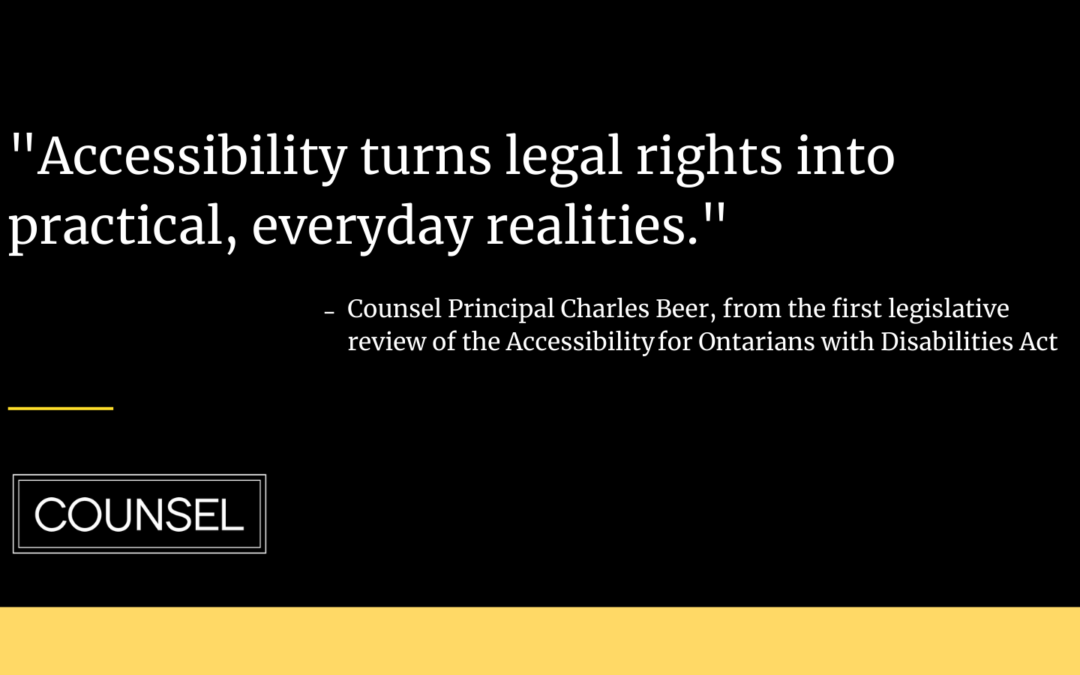This Saturday, December 3rd, 2022 is International Day of Persons with Disabilities.
In 2005, the Government of Ontario unanimously passed the Accessibility for Ontarians with Disabilities Act, 2005 (AODA) and mandated periodic reviews to be tabled in the Ontario Legislature. In the fall of 2009, Counsel Principal Charles Beer was tasked by the Government of Ontario to review the Province’s Accessibility for Ontarians with Disabilities Act, 2005. Counsel Managing Principal and Founding Partner Caroline Pinto supported the work of the Review. Since the first review, there have been two further reviews in 2014 and 2019. Currently the fourth and final review is being carried out.
We asked Charles what message he would like to share on December 3rd:
In my report, tabled in the Legislature in May 2010, I first asked the question “Why Accessibility Matters?” I suggested that what is key are the goals of full equality and participation:
“First, what is at stake is a question of our fundamental values as a society. The rights of persons with disabilities are protected under both the Canadian Charter of Rights and Freedoms and Ontario’s Human Rights Code. As the Minister of Citizenship and Immigration who introduced the AODA in the legislature said in 2004, ‘We all agree that discrimination against people with disabilities is wrong; accessibility for people with disabilities is right.’ More recently, the United Nations Convention on the Rights of Persons with Disabilities has been tabled in the House of Commons.
Accessibility turns legal rights into practical, everyday realities. The goal behind the AODA is to create an inclusive society where everyone can participate to their full potential. Ontario as a whole will benefit from providing full accessibility for persons with disabilities. As accessibility increases, Ontarians with disabilities will bring their talents to bear more effectively in the workplace and in all other aspects of Ontario life. Youth with disabilities will have more opportunity for educational achievement and seniors will live more fulfilling lives. Consumer spending by persons with disabilities will rise. And our quality of life will be enriched by the fuller inclusion of Ontarians with disabilities in our social relationships and community activities.
Most important, the realization of accessibility will demonstrate our shared commitment to each other — and reinforce the values of decency, fairness and respect for individual dignity that bind Ontarians together.”
I believe that the objectives of full equality and participation remain equally valid today. There is no question that much has been done to improve the place of disabled persons in Ontario since the passage of the AODA. However, the impact of the COVID-19 pandemic has made the challenges to full inclusion even more stark.
On this day we need our governments, the public and private sectors, the charitable and non-profit sectors and we, as citizens, to recommit to the principle of inclusion for all persons with disabilities and to do what each of us can to make this a reality.
Read Charles’ full 2009 report here.
Counsel is committed to incorporating accessibility principles into all of our work. We are continuing to learn and to increase the accessibility of our communications. For more on our commitment and to provide feedback, visit Counsel’s accessibility page here.

